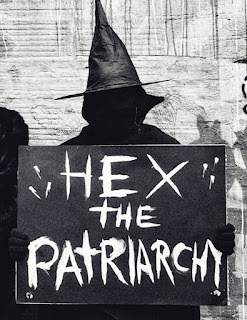Kester Brewin makes the argument in
Mutiny! Why We Love Pirates, And How They Can Save Us that pirates always emerge when economies become blocked by the powerful. During the Golden Age of piracy wealth was flowing from the New World to the Old, enriching the empires of Europe. The seamen who made this transport possible were blocked from this wealth, often pressed into naval service at the point of a gun. Press ganged into service by the empire, life aboard the ships of England, Spain, France and Portugal was functional slavery.
So a life of piracy seemed an attractive alternative. Though perilous, the life of a pirate offered freedom over the slavery of empire.
And this freedom was the great affront of the pirate to the empires of the world. The ships of England, Spain, France and Portugal carried letters from their kings allowing them to act as pirates. When a English ship attacked and robbed a Spanish ship this was legitimate, sanctioned by the king of England. The English ship was not a
pirate, but a
privateer.
To the pirates, that seemed to be a distinction without a difference. When robbery was sanctioned by empire it was legitimized, not robbery but business as usual. But when pirates, unaffiliated with any empire, robbed a ship? That was an affront to empire. High treason. A crime. Immoral. A sin. When captured, pirates were summarily hanged.
In short, Kester Brewin argues that piracy emerges when access to the common good becomes blocked. And more often than not, it's empire who is doing the blocking, legitimizing their own robbery, injustice, and oppression while condemning it in others.
Piracy, thus, emerges whenever and wherever an economy has becomed blocked. Pirates are symptoms that injustice is talking place. As Brewin writes:
I want to argue that pirates emerge whenever economies become 'blocked.' To put it another way, wherever we see piracy we are looking at a system in trouble, a trading structure that is unjust...
In the hands of Brewin this understanding of piracy is a powerful tool to talk about our current political and economic systems. I encourage you to read
Mutiny! to ponder his analysis.
For my purposes, I want to ponder how Jesus and the early church acted as pirates.
Specifically, I think you can make a really strong case that the reason Jesus was killed was because he was a pirate.
The conflict that brought about Jesus' death was his clash with the temple. Jesus' temple action was the precipitating event leading to his arrest and trial. And Jesus' claims about "tearing down the temple" were the main issues being debated during his trial before the Sanhedrin.
Jesus had been picking a fight with the temple for some time. What was the issue?
Following Brewin, the temple represented an economy that had become blocked. Access to God, community and salvation was being controlled by wealthy and politically powerful elites. Large portions of Jewish society--the poor and marginalized--were being shut out of God's kingdom economy.
And so, a pirate emerged.
Jesus began to offer forgiveness on the street, free of charge. And the problem with this was that the forgiveness Jesus offered was not legitimized or sanctioned by the temple elites. That was the question Jesus faced over and over again: "Who
authorized you to do this?"
Jesus was a pirate, acting outside the structures and controls of empire. Jesus cracked open a blocked economy, granting access to those who had been excluded and marginalized.
As Brewin writes, pirates emerge to raise "merry hell" whenever "the voiceless find their path blocked."
Jesus, as a pirate, raised merry hell, and he was killed for it. For the kingdom had begun to unblock God's economy, letting in the voiceless, excluded and marginalized. And for that the empire executed Jesus as a criminal and bandit.
In all seriousness, Jesus was crucified for being a pirate. Jesus wasn't killed for being a kind human being. He was killed because he was offering access to the kingdom of God outside the boundaries of legitimizing authority.
So, raise a glass today for the pirates of the kingdom! Join the kingdom's mutiny against the empires of the world. The tide is up and the winds of the Spirit are blowing. Shake out the main sail and pull up the anchor.
Set sail and raise the kingdom's pirate flag.























